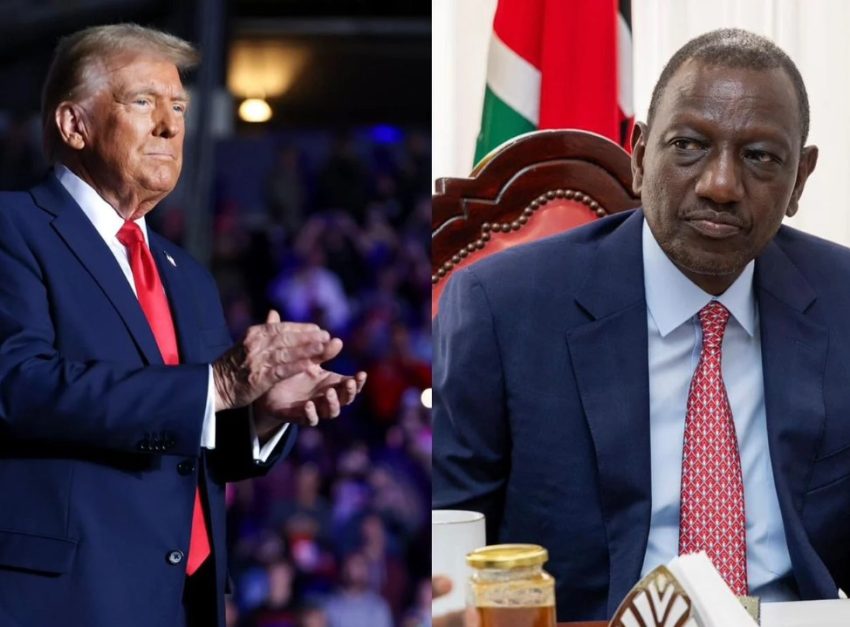In May 2024, Kenya made history by becoming the first sub‑Saharan African country to receive the Major Non‑NATO Ally (MNNA) designation from the United States—a coveted status that promised deeper defense cooperation, enhanced security assistance, and privileged access to joint military programs.
The designation marked a milestone in U.S.–Kenya relations, reflecting years of collaboration in counterterrorism, peacekeeping, and regional stability efforts. In early 2025, that alignment was on full display when Kenya hosted Justified Accord 2025 (JA25)—U.S. Africa Command’s largest joint exercise in East Africa—cementing Nairobi’s role as a key partner in military preparedness and regional security.
Yet, just over a year after the status was granted, the alliance is facing its most serious test. Senior officials in Washington have signaled that the United States is considering revoking Kenya’s MNNA status, citing concerns over Nairobi’s alleged ties to Sudan’s Rapid Support Forces (RSF) and mounting reports of police brutality within Kenya.
According to U.S. defense analysts, intelligence reports suggest Kenyan entities may have maintained informal links with the RSF—a paramilitary group accused of widespread atrocities during Sudan’s ongoing conflict. While Nairobi has denied any formal military cooperation, the perception of association has raised alarms in Washington.
At the same time, human rights organizations have escalated criticism of Kenyan security forces over their handling of domestic protests, accusing the police of excessive force, unlawful detentions, and extrajudicial actions. In recent months, international media coverage of street demonstrations in Nairobi, Kisumu, and Mombasa has intensified pressure on the Kenyan government to address these allegations.
The MNNA designation confers a range of defense and security privileges: priority access to U.S. military equipment, closer intelligence-sharing arrangements, participation in joint research, and eligibility for certain counterterrorism funding. While it stops short of a mutual defense pact, its symbolic and strategic value has elevated Kenya’s global security profile.
Losing the status could deal a blow to Nairobi’s defense modernization plans, potentially slowing access to advanced technology and reducing U.S. military funding streams. Diplomatically, it could also dent Kenya’s image as Washington’s most trusted security partner in East Africa.
Kenyan officials have downplayed the threat, emphasizing that the country remains a “committed partner in regional and global security.” The Ministry of Foreign Affairs has reiterated Nairobi’s policy of nonalignment in foreign conflicts and pledged to review any credible allegations related to the RSF.
On the issue of police conduct, government spokespeople maintain that Kenya’s security forces operate within the bounds of the law and that any abuses are subject to investigation. Critics, however, say accountability mechanisms remain weak.
The tension comes at a time when Kenya is pursuing a delicate foreign policy balance—maintaining deep ties with the U.S. while expanding partnerships with China, the Gulf states, and BRICS-aligned nations. Analysts warn that a breakdown in defense relations with Washington could push Nairobi closer to alternative security and investment partners, potentially reshaping East Africa’s geopolitical landscape.
A review of Kenya’s MNNA status is expected to be discussed in Washington over the coming weeks. While some U.S. lawmakers have urged caution, arguing that alienating Nairobi could harm counterterrorism efforts against al-Shabaab and other militant groups, others insist that the MNNA title must align with strict human rights and foreign policy standards.
For Kenya, the challenge will be to address U.S. concerns without compromising its sovereign policy choices. For the United States, the decision will test whether strategic security priorities outweigh growing human rights criticisms.
Either way, the coming months will determine whether one of Africa’s closest security partnerships remains intact—or becomes a casualty of shifting global alignments.




